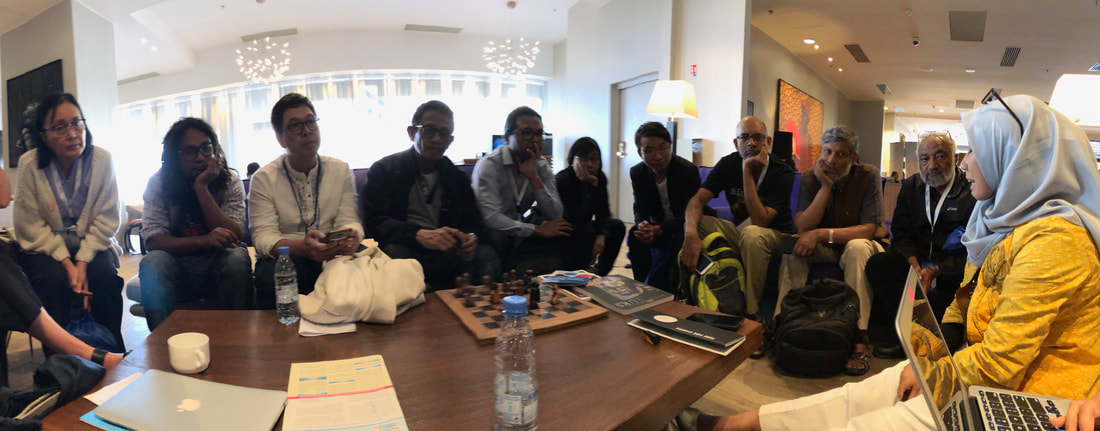|
For 11.11.11 who supported BK's participation in the PWYP GA19 Bantay Kita participated in Publish What You Pay’s Global Assembly (PWYP) in Dakar; Senegal.The approval of the new five-year global strategy was one of the major agendas of the global PWYP assembly. The new global strategy intends to build on the achievements of the last several years, scale up the impacts and continue to strengthen the movement for greater transparency and accountability of the extractive industries. The gathering also served as the election of new global council members. Chadwick Llanos of Bantay Kita was one of the newly elected global council membersto represent the Asia Pacific Region. The newly elected global council ratified the new five-year strategy.
Current context of disclosure The different plenary and breakout sessions provided venues to share and learn different country context on how to enhance disclosures and on how to push for more citizen participation and greater accountability. For example, in the Philippines, gender related disclosures on employment have been available for the last two years but there are specific issues that need more attention like the role and impact of mining in women and the related governance issues that need to be addressed. There was also emphasis on the need for more disclosures on social and environmental payments and issues on labor rights, health and safety - not just of laborers but as well as of those of communities. Calling for social and environmental disclosure In the Philippines, for the past several years, the CSOs have been clamoring for the disclosure of social and environmental impacts of the extractive industries. This has been more pronounced given the context of climate change vulnerability and the resulting hazards. Now that the global strategy is pushing for this and how it should be reflected in the international EITI standards, the CSOs in the PH-EITI multi-stakeholder platform can have stronger support and basis to demand disclosures and transparencies on these areas. For example, environmental disclosures such as auxiliary rights on water and timber are not publicly disclosed. Tree cutting and water permits are easily granted to mining companies with less or no regards over communities’ rights to these resources. CSOs, over the past several years, have been asking for disclosures on these natural resource use primarily because these ‘rights’ have been exploited by mining companies. At the end of the Global Assembly, the Coalition called on the EITI to include social and environmental disclosures and publish contracts and licenses. Moving forward With the new global agenda, Bantay Kita will be able to put forward the communities’ agenda on gender, labor, social and environmental issues and continue its advocacy and facilitation of significant reforms in natural resource governance. Bantay Kita will continue to build on its initial achievements to make transparency and accountability work for the communities it serves. The direction is to make transparency and accountability work such positive actions and outcomes will redound to the communities where it matters most.
0 Comments
Leave a Reply. |
Previous Posts
May 2024
Topics
All
|
What We Do |
Know More |
About Us |
Contact Us
[email protected] | +(63) 917 5105 879 1402 West Trade Building, West Avenue, Brgy. Phil-Am, Quezon City, Philippines |

